By Program
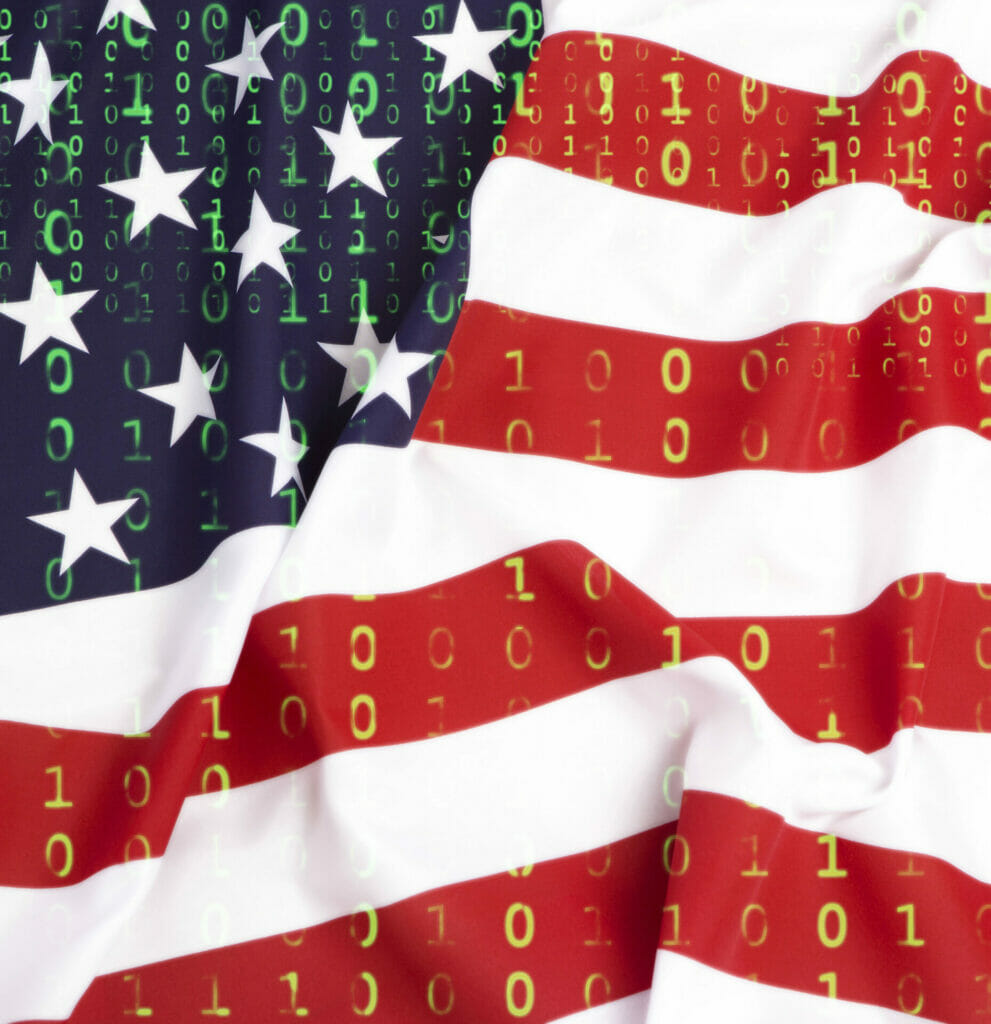
Cyberwar, Deterrence, and the Escalation Lattice
April 20, 2023 | 12:30 - 1:30 pm | SRH 3.122, LBJ School
On Thursday, April 20, the Strauss Center welcomed Dr. Martin Libicki, Keyser Chair of Cybersecurity Studies at the U.S. Naval Academy, for a discussion on “Cyberwar, Deterrence, and the Escalation Lattice.” This talk was held at the LBJ School of Public Affairs as part of the Strauss Center’s Brumley Speaker Series.
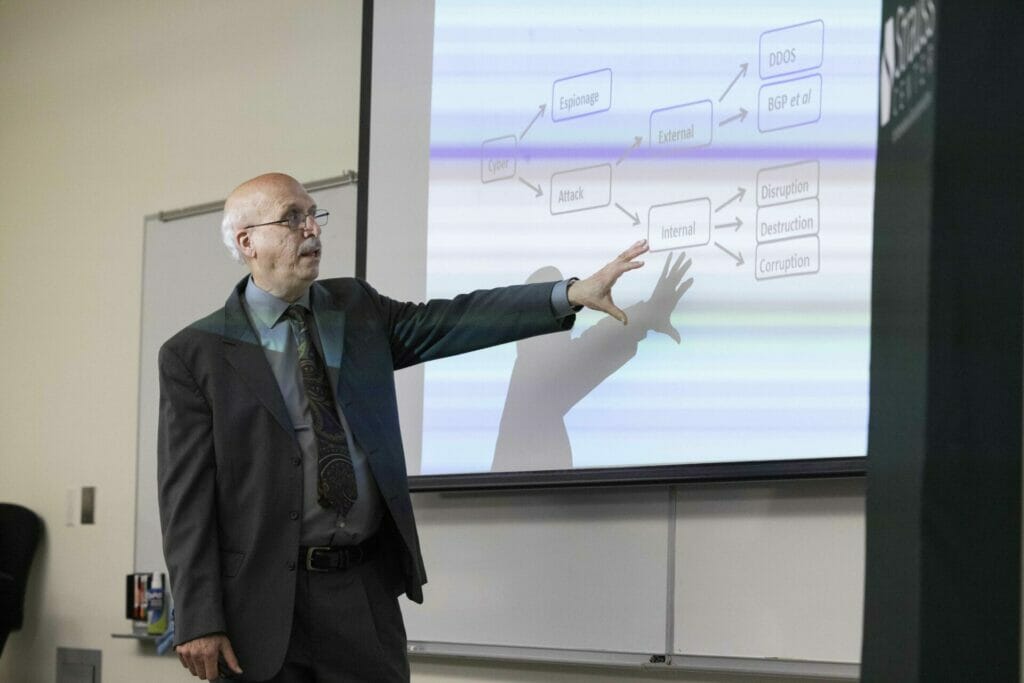
Dr. Libicki’s punchy presentation was divided into a section covering the basics of cyber as a military instrument, a section on escalation dynamics, and a final section on the current ambiguous role of cyber operations in military escalation.
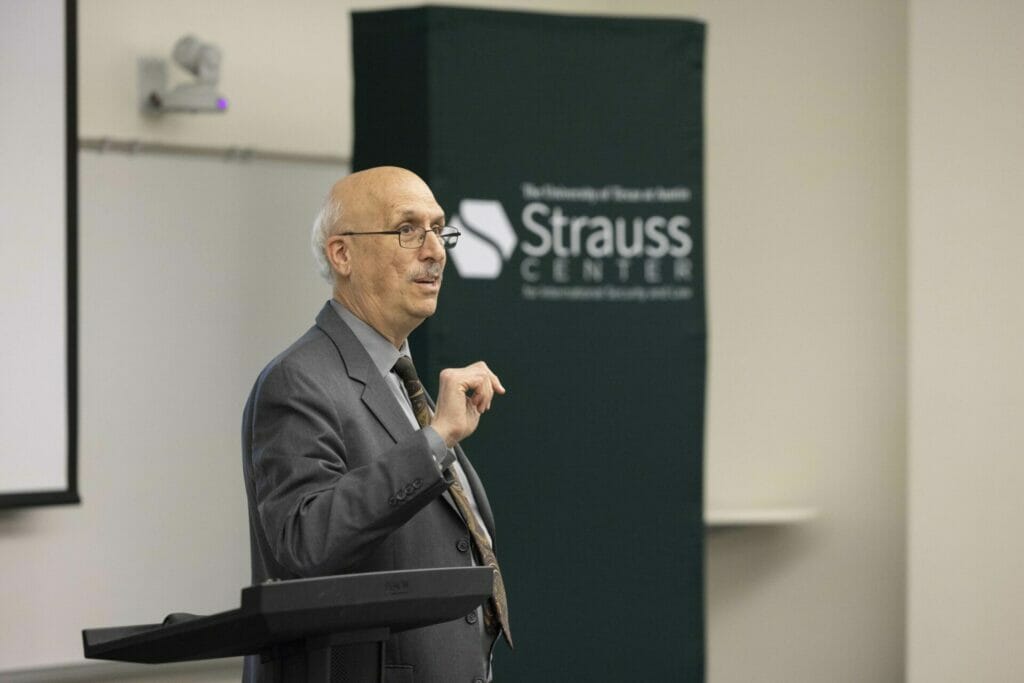
Throughout his talk, Dr. Libicki made a series of critical distinctions to dispel some of the confusion and hype surrounding cyber operations. Firstly, he made the distinction between cyber espionage and cyber attacks. While they are identical initially, they diverge in subsequent stages and end objectives. Cyber espionage is generally not understood as a casus belli (a cause for war in international law), while cyber attacks can be, but generally have not been.
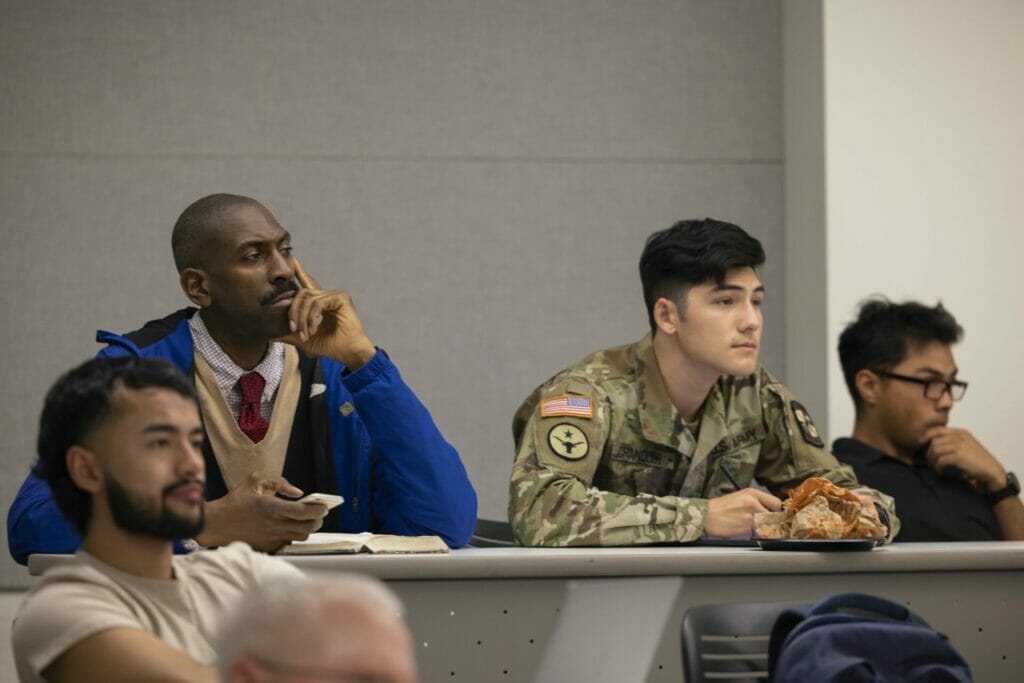
Another distinction Libicki made was between cyber operations and their close cousins in information operations, and electronic warfare operations. In Libicki’s summation, electronic warfare operations target the physical layer of electronic systems, cyber operations target the virtual layer, and information operations target the content layer.
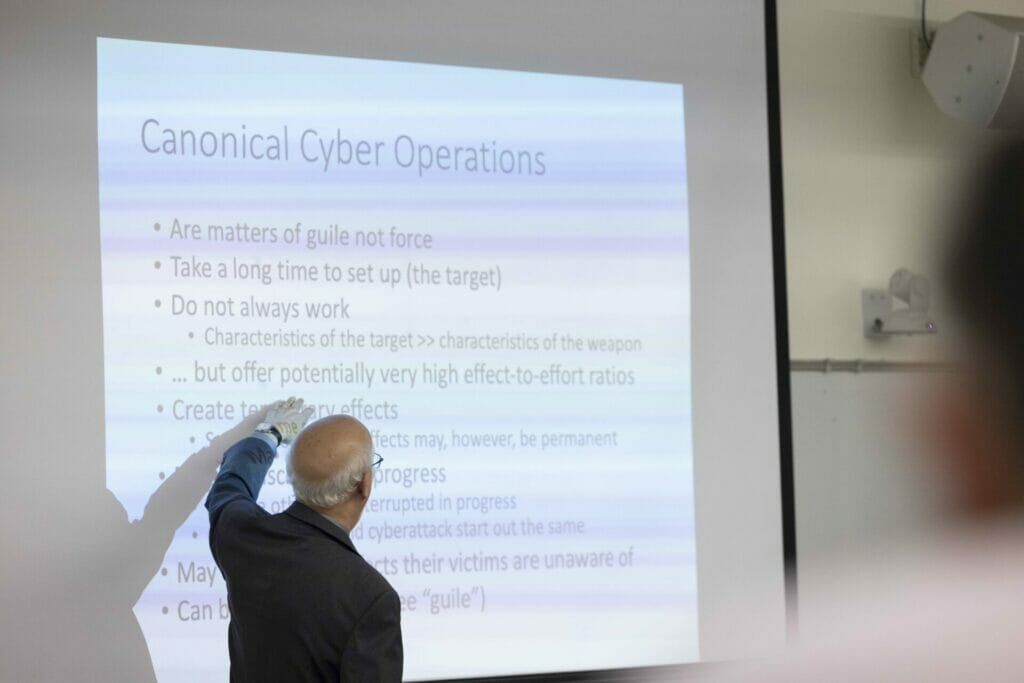
Regarding cyber deterrence, Dr. Libicki highlighted two primary forms of deterrence: deterrence by punishment and deterrence by denial. The former refers to dissuasion by the threat of physical destruction that would follow an unwanted action by an adversary, and the latter refers to dissuasion through the imposition of unacceptable costs in the course of an unwanted adversarial action. As no one has yet been killed by a cyber attack, he continued, cyber deterrence discussions tend to concern deterrence by denial. Here, Dr. Libicki defined the foundations of cyber deterrence as attribution, thresholds, credibility, and capability. Currently, he stated, America possesses only a recognized capability and lacks a proven record in consistently attributing state level cyber attacks, defining clear thresholds, or demonstrating credibility through clearly signaled mobilization of cyber operations to punish unwanted adversarial actions. Israel, Dr. Libicki contended, is the only country in the world with credibility in cyber due to their explicit use of cyber operations in retaliation to alleged Iranian interferences.
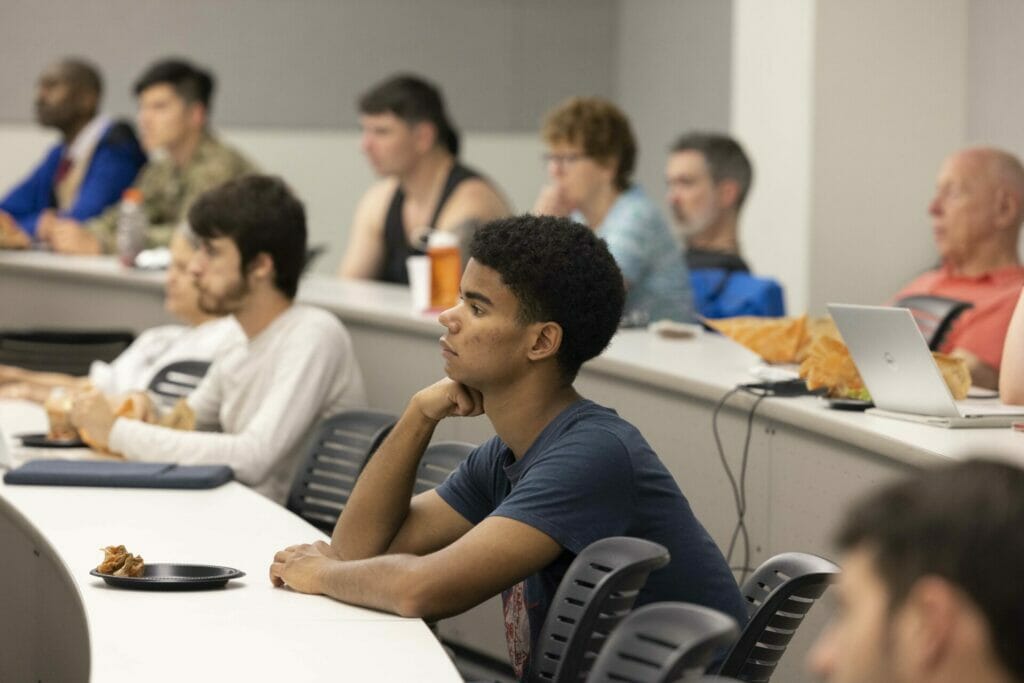
Regarding thresholds, Dr. Libicki outlined the current lack of accepted boundaries for cyber operations mobilization, and pointed out a few places the line could be drawn. We could distinguish between peace and cyber, cyber and non-lethal uses of force, or between cyber and lethal uses of force. While it seems abstract, depending on the distinction we choose different thresholds and escalation dynamics results.

Overall, Dr. Libicki’s talk was an excellent survey of some of the key features of the military side of the cyber domain. His candid assessment of the complexity of cyber operations and their implications brought to the fore many of the reasons why cyber remains much discussed, but rarely understood.
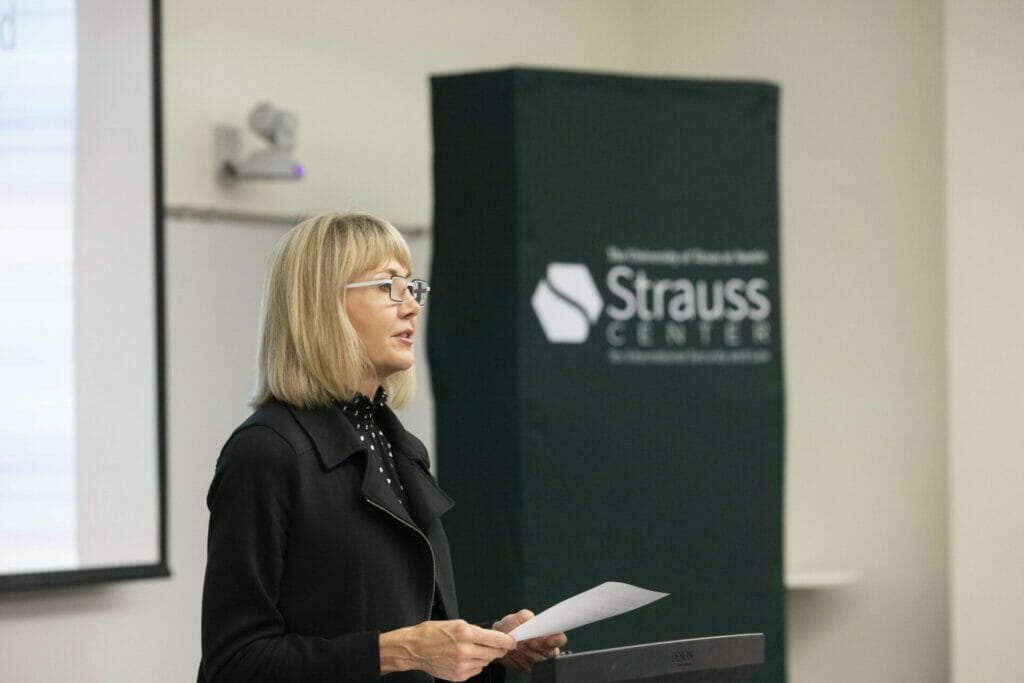
This event was free and open to the public. Special thanks to Brumley Mentor Dr. Rhonda Evans and Brumley Fellow Kevin Lentz for moderating. If you have any questions about this event, please contact Brittany Horton at [email protected].
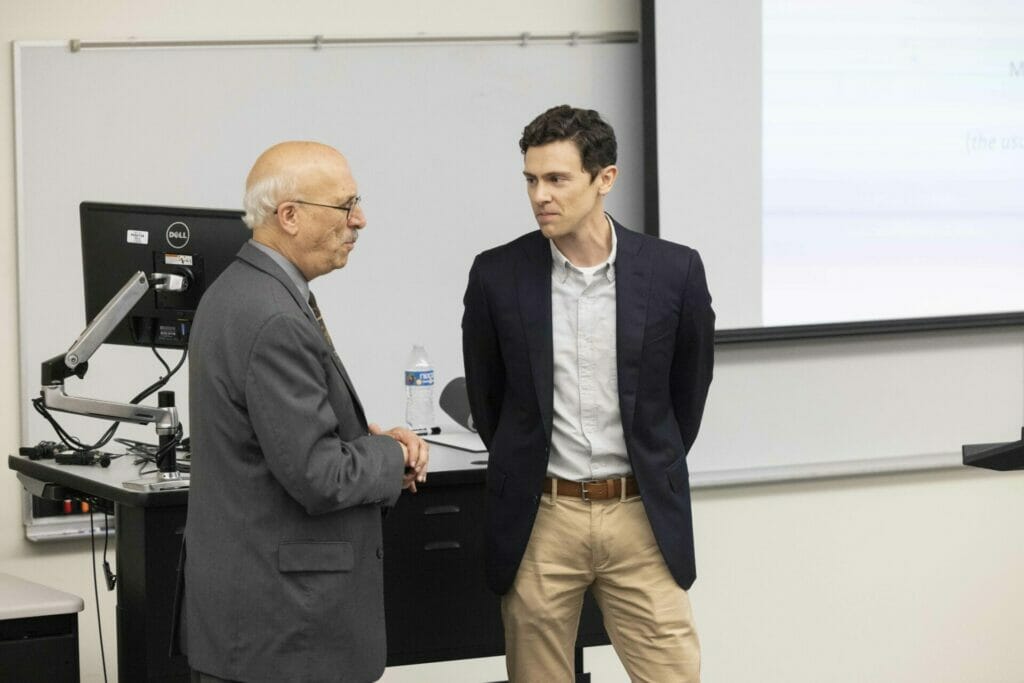
Biography
Martin Libicki (Ph.D., U.C. Berkeley 1978) holds the Keyser Chair of Cybersecurity Studies at the U.S. Naval Academy. In addition to teaching, he carries out research in cyberwar and the general impact of information technology on domestic and national security. He is the author of a 2021 textbook on cyberwar, Cyberspace in Peace and War (2nd edition), as well as Conquest in Cyberspace: National Security and Information Warfare and various related RAND monographs. Prior employment includes twelve years at the National Defense University, three years on the Navy Staff (logistics) and three years for the US GAO.


